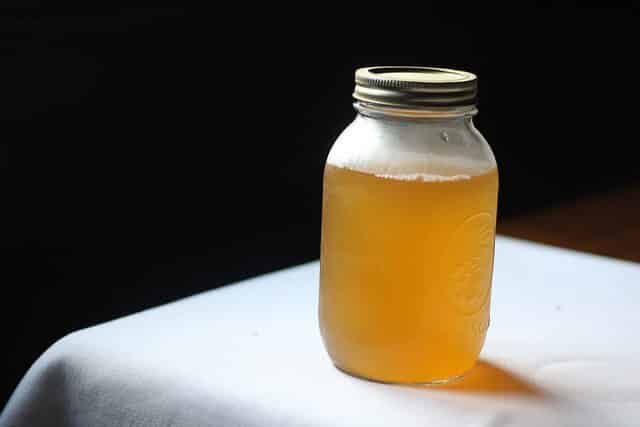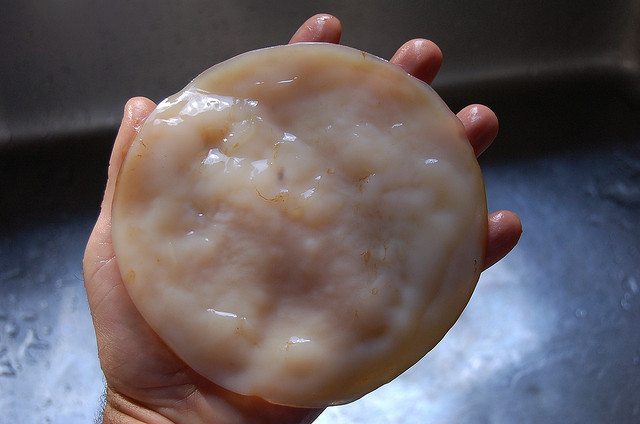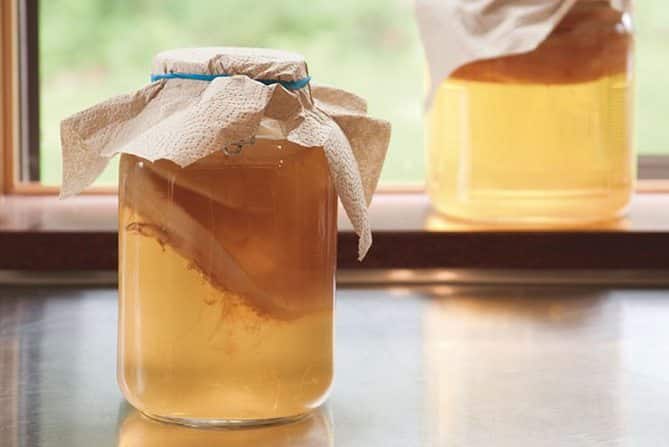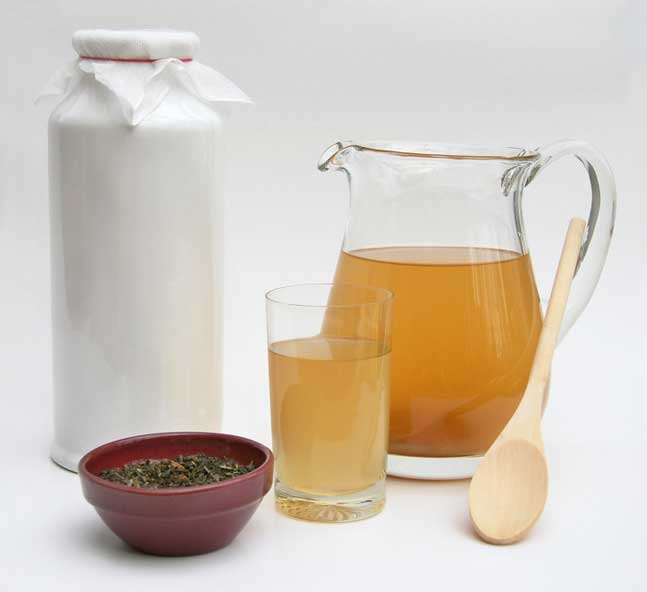Kombucha Health Benefits: The Facts, The Fiction, And The Science
With at least two thousand years of history behind it, there’s little dispute over the fact that kombucha has an effect on the human body. Kombucha has played a part in human health ever since its discovery in China around 200 BCE. You can read more about the history of kombucha in this article. Over the centuries, the accumulated evidence has proven that kombucha can play a key role in vitamin absorption, digestion, and overall regulation of the body’s processes. However, those centuries have also included times when kombucha has been advertised as a “miracle cure” for everything from baldness to infertility, and not all of those claims have been proven true. (To get the lowdown on kombucha facts vs. myths, read this article.
One of the earliest documented uses of kombucha tea is in traditional Chinese medicine. Like other traditional Eastern medical systems, Chinese healing techniques includes balancing the qi (chi) to keep the whole body healthy. Kombucha is a “yang” substance, whose bitter and sour elements help clear out areas where the qi has stagnated. Another way of looking at this is that it helps keep the circulatory systems (both blood and lymphatic fluid) moving smoothly, which is the first step to making every part of the body gets the nutrients and oxygen it needs for optimal functioning.
In the beginning, no one was analyzing kombucha to see exactly how it performed this medical trick, but as scientific methods have advanced, researchers have focused on finding out the reasons for kombucha’s many health benefits.
What’s In Kombucha?
Kombucha is created by the action of a SCOBY (a Symbiotic Colony Of Bacteria and Yeast) as it grows in a liquid traditionally made of black or green tea, mixed with a sweetener like sugar. Each SCOBY is slightly different, because of the difference in genetics, in environment, and in the techniques used by the kombucha brewer. In other words, a SCOBY has an individual “fingerprint,” just like you do. But there are certain forms (or “strains”) of yeast and bacteria that are common to all SCOBYs, and in general they perform the same functions. Here’s what the researchers have found:
- Gluconic acid, lactic acid, and acetic acid are found in every batch of kombucha tea.
- These acids are created by the Acetobacter family of bacteria, including xylinoides and A. ketogenum.
- Gluconacetobacter kombuchae is a bacteria that is only found in kombucha.
- Kombucha also contains a small amount of alcohol. Along with carbonation, this is produced by the yeasts in the colony, the most common of which are the Saccharomyces yeasts such as ludwigii and S. cerevisiae.
- Zygosaccharomyces kombuchaensis is a yeast that is only found in kombucha.
- There is a small amount of caffeine left in kombucha after the fermentation process is complete.
- There is also a small amount of sugar left in the brew (depending how long you ferment it), although the SCOBY “eats” the majority of it.
- Kombucha tea contains probiotics like boulardii and B. coagulans.
How much gluconic and acetic acid, alcohol, and sugar are in your finished kombucha tea depends on a lot of things, including the ingredients you choose (tea, water, sugar, and flavorings), the health of your SCOBY, and the way you brew the kombucha. You can get an idea about some of the different methods and results in this article.
No matter what the proportion of these kombucha components are in the finished tea, there will always be a significant dose of acid elements that help regulate your body’s pH.
Read our detailed article that looks at exactly what’s in the average batch of Kombucha.
What’s My Body’s pH?
The human body – and actually, every substance on earth – has a specific pH, showing where it falls on the scale of acid to alkaline. This term and the concepts behind it were first established in the early part of the 20th century by Danish chemist Søren Peder Lauritz Sørensen. The term “pH” is shorthand for the way hydrogen ions (chemical symbol H) react in a solution. Hydrogen will break down differently depending on how acid a solution or substance is, and this can be measured. The pH scale generally goes from 0 to 14, with acid substances at the low end, “neutral” ones in the middle, and alkaline (or “base”) substances at the high end of the scale. Here are some examples:
0 hydrochloric acid
2 lemon juice
5 black coffee
7 pure water (this is the “neutral” value)
8 sea water
11 ammonia
14 lye
Healthy blood has a pH of between 7.35 and 7.45. Studies have found that having a higher pH often indicates the presence of cancer or other diseases. This doesn’t mean that a high blood pH means you have cancer, but it is a reason to work towards lowering and balancing your blood pH for optimum health. Drinking kombucha will lower the blood pH because its pH (between 2.5 and 3.5) works in your system to lower the general pH levels in your body. By contrast, the acids produced in your system during normal digestion are only between 1.5 and 2 on the pH scale.
There’s another benefit to the low pH of kombucha: as the FDA has confirmed, when the pH of a substance is below 4.6, the risk of botulism is eliminated, because C. botulinum will not grow in an environment that is this acid. While kombucha won’t protect you from everything, it certainly does give your body the resources it needs to combat many dangerous health threats.
Kombucha Fights Off Invaders
The antimicrobial action of kombucha kills botulism spores, and researchers have also found that it helps protect against other food-related illnesses that are due to microbes like Escherichia coli and Salmonella typhi, both of which send tens of thousands of people to the hospital every year with cases of food poisoning.
Another microorganism that causes problems is the yeast called Candida albicans. When there is too much of this yeast growing in the digestive tract, the entire functioning of the body is thrown out of balance. This can cause infections in the mouth (a disease called “thrush”) or lead to yeast infections in both men and women. Invasive candidiasis is when the yeast migrates into the bloodstream, and can develop into a dangerous condition requiring hospitalization.
The yeast named S. boulardii is a kombucha component that destroys the aggressive C. albicans yeasts. This is one reason why people who have a problem with candida are frequently prescribed regular doses of kombucha.
The Many Health Benefits of Kombucha
When you’re looking at the claims related to kombucha’s health benefits, keep one thing in mind: the main role of kombucha is to keep the body balanced. This means pH balance, but it also refers to maintaining the correct level of natural (good) bacteria and yeasts in the body, keeping a constant nutrient supply circulating through the system, and promoting free flow of clean blood and lymph. Most of the proven health benefits of kombucha are in this area of balance and detoxification. However, the effects of kombucha, as seen in testimony of people who drink kombucha tea regularly, are generally agreed on.
Digestion. Because kombucha has a balancing and stimulating effect on the digestive system, people who drink kombucha report that they no longer have problems with constipation or diarrhea. The digestive system includes the mouth and stomach as well, both places where dangerous bacteria can hide. People who have problems with ulcers also note that their stomach problems are reduced or eliminated after drinking kombucha tea.
Energy. When your car comes back from the shop after a complete tune-up, the first thing you notice is how smoothly and quietly it’s running. The same thing happens when people drink kombucha. Most people say that they feel more energetic, that they have more endurance, and that the little things that were slowing them down before are gone. Drinking kombucha is like getting a tune-up every day!
Protection. When your body is in balance, you’ll find it easier to fight off colds and seasonal flu and allergy symptoms. The many vitamins (notably C and B-complex) in kombucha give you an extra boost that keeps you healthy while other people are using up their sick leave.
Anti-inflammatory action. One of the things that kombucha has been connected with is its ability to reduce inflammation in the body. Arthritis, rheumatism, gout, and other chronic health problems that are linked to inflammation seem to be reduced by kombucha tea. This is one area of health science that is getting a lot of attention lately, as the population ages.
Weight loss. Kombucha isn’t a “diet drink,” but many people report that when they drink it regularly, they lose and keep off weight. One reason is that it’s low in sugar (as well as high in nutrients) and if you’re reaching for a glass of kombucha tea instead of a can of soda, you’re definitely drinking fewer calories.
By stabilizing and balancing your body’s systems, kombucha helps you naturally fight off things that are trying to put your body out of balance. For more information on some of the specific health benefits connected with drinking kombucha tea, read this article.
Kombucha Boosts Your Vitamins – and Minerals
In one test, an 8-ounce sample of kombucha was found to contain a significant amount of B vitamins (folic acid, B1, B2, B3, B6, and B12). In fact, that 8-ounce portion contained between 20-25% of the RDA for those vitamins! Remember, though, that the vitamin content of every glass of kombucha will be slightly different, so eat a balanced diet overall, and don’t rely on kombucha to provide everything you need in your daily menu.
Kombucha also has small amounts of the essential minerals iron, copper, and zinc. Zinc and copper both play key roles in your immune system, and without iron, your red blood cells would not be able to move oxygen through the bloodstream to your body and your brain.
Another important compound found in kombucha is ascorbic acid, a form of vitamin C. It’s important that you get enough vitamin C every day, because it’s soluble in water, which means it’s not stored in the body. Vitamin C promotes the production of a protein called collagen, which your body uses to make and repair tissue, skin, blood vessels, and even your bones. It’s also a powerful antioxidant, and helps protect your body from the action of free radicals that can lead to serious problems like cancer, arthritis, and heart disease.
Because kombucha contains probiotics, it not only provides you with these important vitamins and minerals, it primes your system to process them efficiently!
Kombucha Helps With Sugar Craving
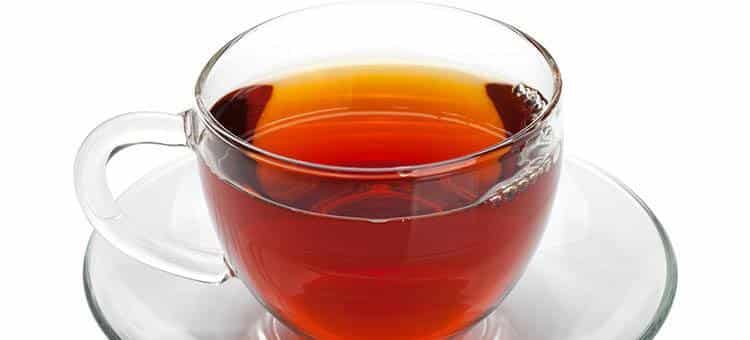
“High fructose corn syrup” is a phrase that’s on everyone’s lips these days – or worse, going between their lips in the form of sugar-filled sodas. HFCS has been linked to obesity, cancer, liver failure, heart disease, tooth decay, and other serious health concerns.
While it’s true that kombucha contains a small amount of sugar, both anecdotal and scientific evidence shows that drinking kombucha can help eliminate a sugary-soda habit. It’s such a satisfying drink, with its sweet-tart fizzy flavor, that you’ll be glad you replaced your cans of soda with your new jars of home-brewed kombucha.
If you want to make your own Kombucha, read our comprehensive Complete Beginners Guide to Making Kombucha.
Kombucha and Caffeine

A glass of kombucha has less than a third of the caffeine of an equal amount of tea; during the fermentation process, the caffeine is one of the things that the SCOBY processes and alters. However, a number of the healthy substances in tea, like the amino acid L-theanine (found in tea but not in coffee), remain in the brew. L-theanine is linked to reduced stress, a lower level of anxiety, and even potential benefits in treating brain diseases like Alzheimer’s.
The tea itself has many health-promoting benefits, which is another reason to drink kombucha. If the kombucha is made with green tea, you’ll also get the power of the antioxidants in the tea, which have been shown to lower blood pressure, lower blood sugar levels, and help reduce cholesterol. For more information on the different types of tea you can use to make kombucha, read this article.
Conclusion
While some people remain skeptical of kombucha’s current status as the Holy Grail of health tonics, there’s no doubt that there are many documented benefits related to drinking kombucha tea regularly.
Join the millions of other people who have enjoyed kombucha for millennia, and start getting some of those benefits for yourself!

